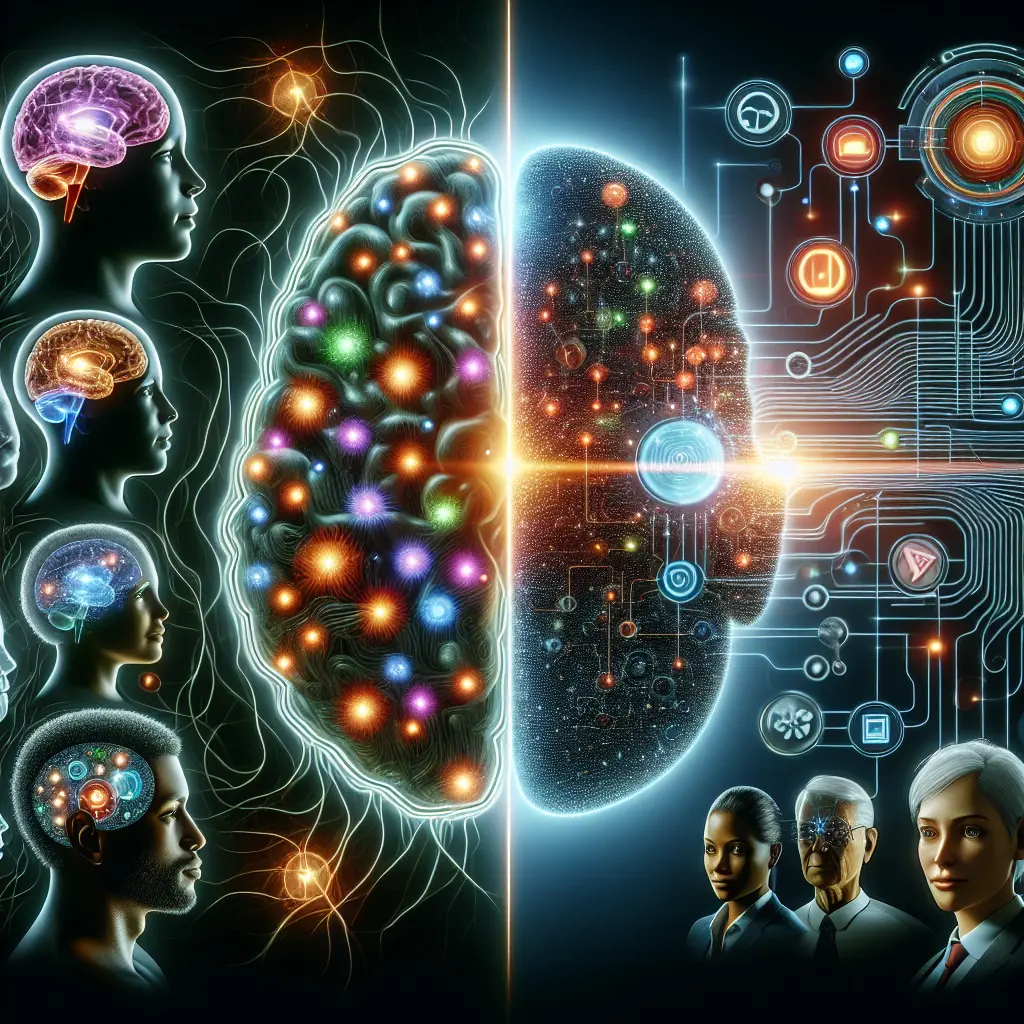
The realm of neurotechnology, specifically Brain Computer Interfaces (BCIs), stands at the frontier of remarkable advancements that promise to transform how we interact with and enhance our cognitive functions. With groundbreaking developments in areas like cognitive enhancement, brain signal decoding, and neurofeedback systems, BCIs are not just a figment of science fiction anymore; they are rapidly becoming integral to medical science and beyond.
One of the most heartening advancements in this field is the implementation of BCIs in aiding individuals with severe communicative limitations. A recent development saw a brain implant help an ALS patient restore conversational communication rapidly. This invasive brain interface, which translates brain signals directly into speech, has proven to be a lifeline for those trapped in their own minds by debilitating conditions. Studies published in journals such as Neurology illustrate how these devices decode neural activities to allow patients to communicate effectively, thereby significantly improving their quality of life.
Another promising venture in the realm of neurotechnology is the AI-powered dementia caregiver training app developed by CareYaya. Having received a grant from Johns Hopkins and NIH through the a2 Collective, this app leverages AI to provide customized training for caregivers of dementia patients. This application not only facilitates better care but also incorporates elements of cognitive rehabilitation, helping caregivers understand and enhance cognitive function in dementia patients, thus contributing significantly to neuroplasticity research.
BCIs have also illuminated insights into the state of 'covert' consciousness in brain-injured patients who appear unresponsive. Recent studies, such as those published in the American Journal of Psychiatry, estimate that about 25% of these patients possess a degree of awareness undetectable by conventional methods. Through the use of EEG interfaces and brainwave optimization techniques, researchers are now able to identify signs of consciousness and cognitive processing, paving the way for tailored therapeutic interventions aimed at cognitive performance boosters.
The role of BCIs in cognitive function improvement isn't limited to clinical settings. Non-invasive BCIs, for instance, are making significant strides in enhancing cognitive abilities without the need for surgical interventions. These devices utilize sensors placed on the scalp to read electrical signals from the brain. Companies are harnessing this technology to develop products that boost brain connectivity and enhance cognitive abilities in everyday activities.
Invasive brain interfaces, though more complex, offer more direct and potent ways to interact with neurological functions. They involve implants that connect directly with neural tissue, facilitating more precise brain-to-computer communication. This direct interaction allows for more effective management of neurological conditions like Parkinson's disease through deep brain stimulation and is integral in developing advanced neuroprosthetics for individuals with spinal cord injuries.
The integration of AI in neurotechnology has been pivotal in refining these technologies. AI algorithms are adept at decoding the vast amounts of data generated by neural interfaces, enhancing the accuracy with which these devices interpret brain signals. This synergy between AI and BCI technology is crucial in advancing our understanding and manipulation of complex brain functions.
Furthermore, neurofeedback systems have become an essential tool for cognitive rehabilitation. By providing real-time feedback based on brain activity, these systems help individuals regulate their brain functions, contributing to areas such as attention enhancement and stress reduction. The therapeutic implications of these systems are profound, especially in treating conditions like ADHD and anxiety disorders, where dysregulation of brain activity is prevalent.
The advancement of neuroplasticity through BCIs also offers hope for recovery post-brain injuries. By engaging specific neural circuits, BCIs encourage changes in neural pathways and synapses essential for recovery. This capability not only aids those recovering from traumatic brain injuries but also enhances cognitive capacities in the elderly, helping combat age-related cognitive declines.
Despite these advances, the development and implementation of both non-invasive and invasive BCIs come with their set of challenges and ethical considerations. The invasiveness of certain neural interfaces raises significant ethical and health concerns, necessitating rigorous regulatory standards and ongoing research to ascertain long-term impacts.
As we look forward to the future of BCIs, continuous research and development are crucial for overcoming these challenges and realizing the full potential of this exciting field. For further reading on recent advancements and detailed studies, readers can refer to articles published in reputable scientific journals such as Nature Neuroscience and The Journal of Neural Engineering.
In conclusion, the advancements in Brain Computer Interfaces present a new era of cognitive enhancement and rehabilitation. From restoring communication abilities in ALS patients to uncovering covert consciousness in unresponsive individuals, BCIs are set to redefine our approach to brain health and cognitive function improvement. As we continue to navigate these developments, it remains imperative that we address the ethical dimensions and ensure that these technologies enhance lives while respecting individual dignity.
Thank you for joining me on this exploration of BCIs and their impact on our cognitive landscapes. The journey towards fully unlocking the potential of our brains continues, and I look forward to discovering where these advancements will lead us next.
Author: Carter Blackwell